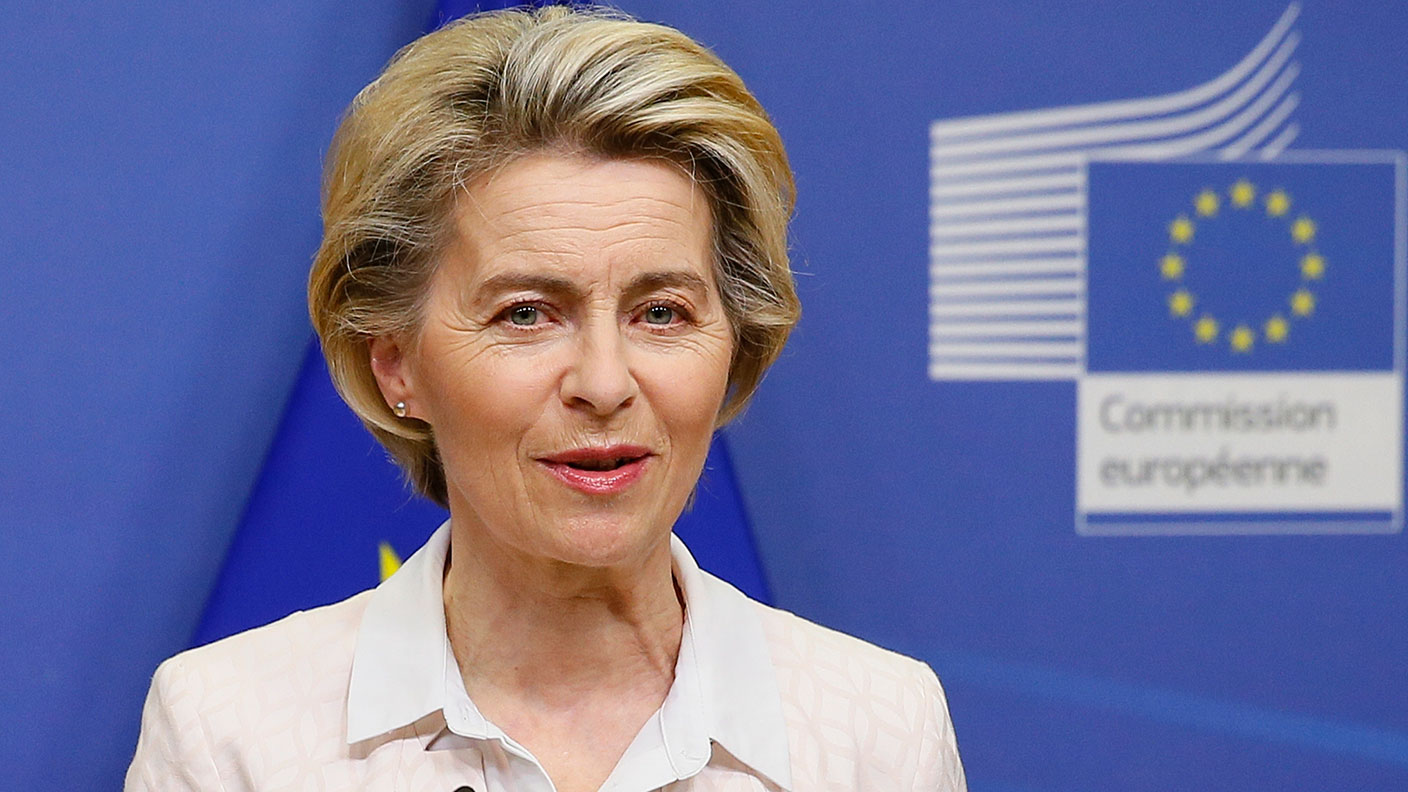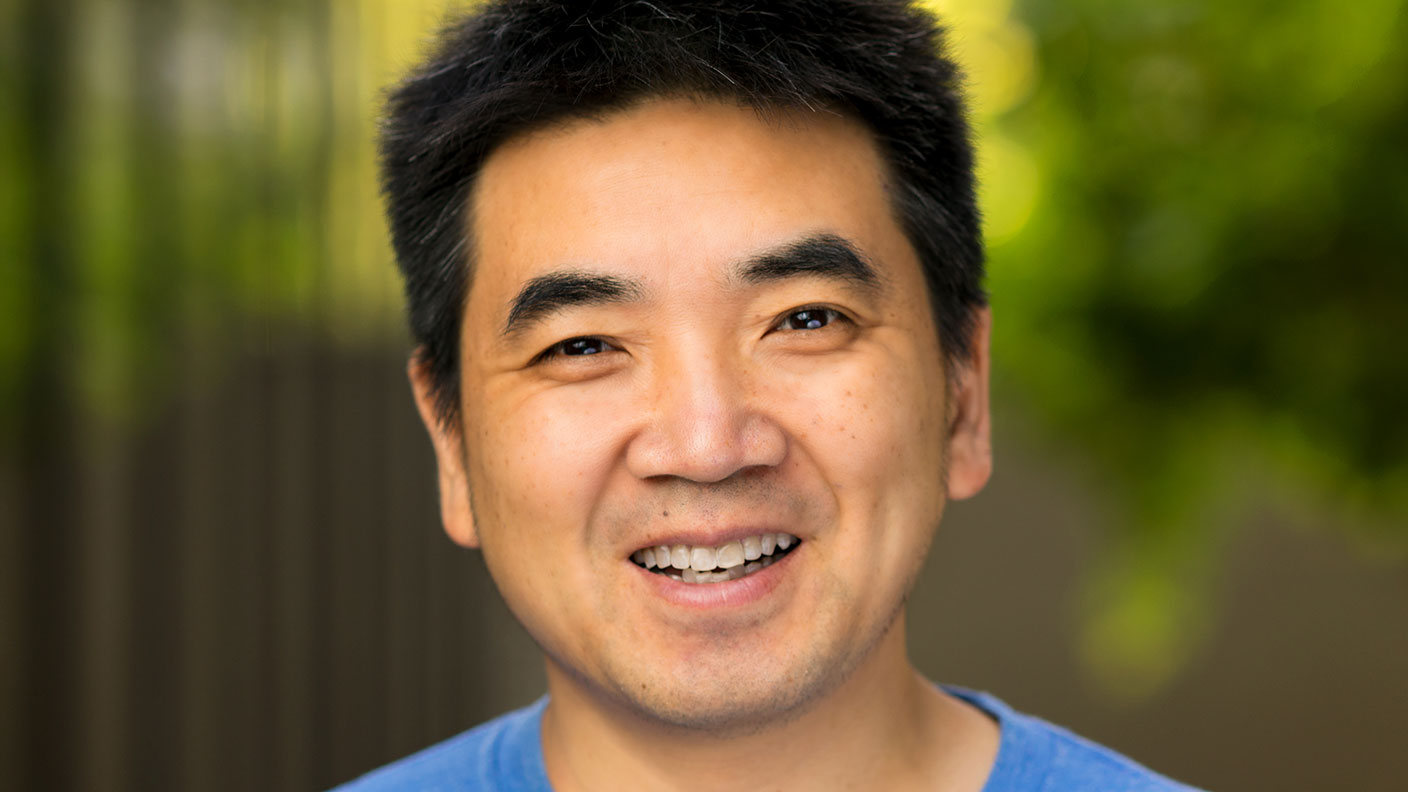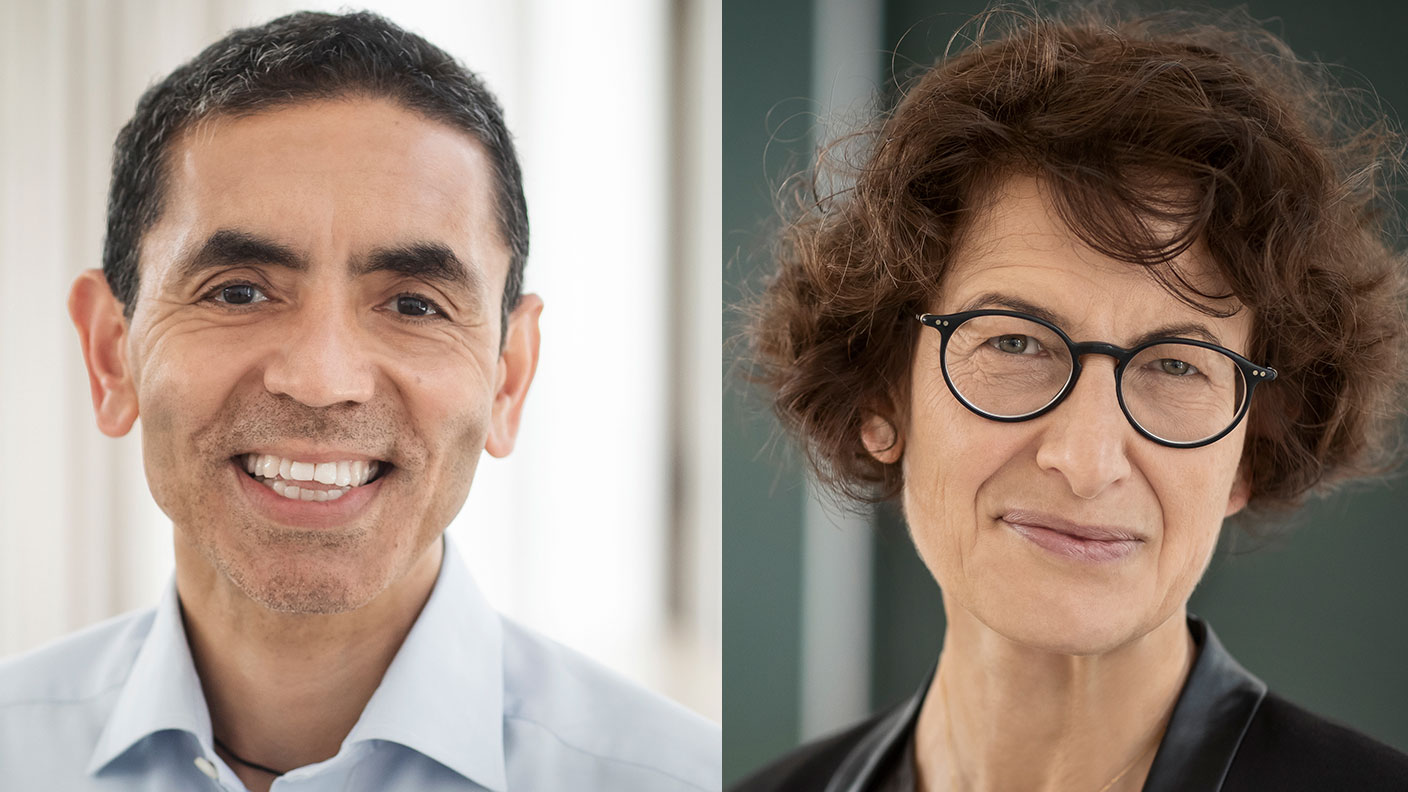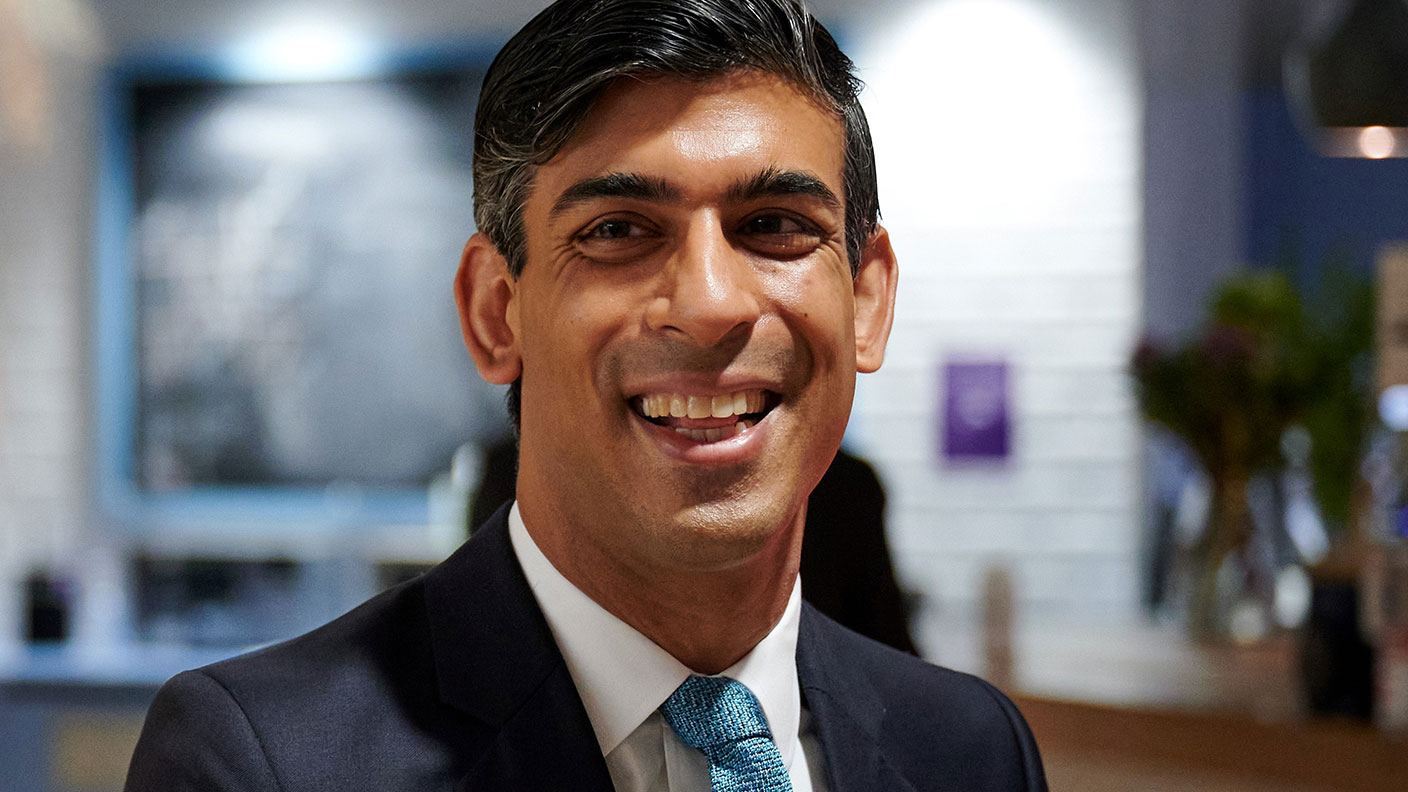
Get the latest financial news, insights and expert analysis from our award-winning MoneyWeek team, to help you understand what really matters when it comes to your finances.
You are now subscribed
Your newsletter sign-up was successful
Want to add more newsletters?

Twice daily
MoneyWeek
Get the latest financial news, insights and expert analysis from our award-winning MoneyWeek team, to help you understand what really matters when it comes to your finances.

Four times a week
Look After My Bills
Sign up to our free money-saving newsletter, filled with the latest news and expert advice to help you find the best tips and deals for managing your bills. Start saving today!
Ursula Von der Leyen: the EU’s model of elegance steadies the ship
“I always wanted… to come home,” said Ursula Von der Leyen, 62, last year, when she became the European Commission’s first female president – her family actually hails from Lower Saxony in Germany. But it was in Brussels that the gynaecologist-turned-politician was born, grew up and first “nurtured a passion for the European project”, says the Financial Times. Her first year in the job has been more turbulent than she could ever have anticipated – even leaving aside the hassle of Brexit dealings. The onslaught of the virus left the Commission “paralysed” as member states shut their borders and hoarded medical kit. Restoring harmony has been a major task for a woman “with little experience of EU structures or of managing the conflicting demands of 27 member states”. Her most significant contribution was steering through an €750bn rescue plan in July – hailed as such “a defining achievement” for the integration of the bloc that some called it the EU’s “Hamiltonian moment”.
Von der Leyen’s close relationship with German leader Angela Merkel was instrumental to the breakthrough. Indeed, for years she was seen in Germany as Merkel’s most likely successor leading the CDU party. But a troubled stint at the defence ministry – marred by a procurement scandal – put paid to that. Instead she ended up as the successful “compromise candidate” leading the commission.
The coolly elegant mother of seven has been criticised in German political circles for being “too aloof, too perfect”. Perhaps that is unfair. But one year into her term, Von der Leyen has maintained an aura of mystique. She’s responsible for legislation affecting more than 700 million Europeans, but few know what makes her tick.
MoneyWeek
Subscribe to MoneyWeek today and get your first six magazine issues absolutely FREE

Sign up to Money Morning
Don't miss the latest investment and personal finances news, market analysis, plus money-saving tips with our free twice-daily newsletter
Don't miss the latest investment and personal finances news, market analysis, plus money-saving tips with our free twice-daily newsletter

Eric Yuan: the nice guy who zoombombed the world
Every now and again a company so succeeds in imprinting itself on daily life that it becomes part of the vocabulary. It’s a measure of the rise of Zoom this year that it has inspired a whole new lexicon – from “zoombombing” (crashing other people’s meetings) to “zumping” (dumping people via video). The man behind this social phenomenon, Chinese-born Eric Yuan – who still owns 22% of Zoom – has seen his personal wealth rocket in line with the company’s shares. Thanks to explosive 1,900% user growth, the stock has soared by 500% this year. Back in April, the Financial Times’ Tim Bradshaw was speculating whether Zoom would prove a flash in the pan, eventually squeezed out by bigger rivals. But it ends the year a solid fixture on the landscape – a symbol of the evolution of virtual communication in business.
One of the few Chinese-born founders to lead a prominent US tech start up, Yuan grew up in Shandong, the son of geology engineers. An early hero was Bill Gates, who inspired his determination to make it to Silicon Valley. After eight failed attempts to secure a visa, he got there in 1997 working for Cisco among others and eventually founding Zoom in 2011. Fans say Zoom’s success couldn’t have happened to a nicer man: Yuan, 50, really believes in the San Jose-based company’s motto of “delivering happiness” – beginning with his own employees. He’s undeniably a popular boss, says Forbes, and is said to live by the motto “work hard and stay humble”. In a year of often vicious tensions for companies with Chinese links in America, he has also shown a considerable talent for diplomacy. Arguably, Yuan is living proof that nice guys don’t always finish last.

Ugur Sahin and Ozlem Tureci: the modest scientists who struck gold
When Ugur Sahin and Ozlem Tureci picked a street called An der Goldgrube (“at the goldmine”) in Mainz for the HQ of their company, they little knew “how prophetic” the address would become, says The Guardian. Following their Covid-19 vaccine breakthrough, their wealth shot up to an estimated £3bn, in line with BioNTech’s soaring US-listed shares. Still, one gets the impression that money is the last thing that matters to the Turkish-German couple, says The Times. Modest to a fault, when they learned the good news that the vaccine they developed with Pfizer was 90% effective, they reportedly celebrated with a cup of tea.
When Tureci and Sahin, who met as students at Saarland University Hospital, began BioNTech in 2008, the main thrust of their research was cancer treatment. “At the time the notion of treating cancer with anything other than surgery, radiation and chemotherapy seemed outlandish,” says The Times.
Their breakthrough was the discovery that the genetic instructions carried by messenger RNA (mRNA) could be mobilised to fight against tumours. If there has been any silver lining to Covid-19, it is that the race to beat the disease has put mRNA vaccines to an early test, says Lex in the Financial Times. Fewer people will die of Covid-19 because of the work of this pioneering couple – and, ultimately, fewer people will die of cancer too. Bravo.

: dishy Rishi charms the nation
Given the prominent role Chancellor Rishi Sunak has played in the lives of every Briton in 2020, it seems extraordinary that just a year ago he was completely unknown to most. Installed in a political coup in February, the untested chancellor quickly rose to the challenge of the pandemic with a decisive £350bn package for business and a national job furlough scheme. Adept at making policy on the hoof, the cult of “Dishy Rishi” was soon in full-swing – aided by popular moves over the summer such as Eat Out to Help Out and a cut in stamp duty that stoked a mini housing-boom.
Born in Southampton, the son of a GP and a pharmacist, Sunak, 40, attributes his desire to serve the community to them. But his own life has been considerably more high-octane. After an intellectually rigorous education (Winchester College, followed by Oxford and Stanford), he joined Goldman Sachs and then the hedge fund, TCI. He is also hugely wealthy. His wife Akshata Murthy is “richer than the Queen”, says The Guardian, thanks to a £430m shareholding in the Indian IT giant Infosys, which was founded by her father.
The Chancellor appears to have two “warring identities”, says The Economist. There’s “Rishi-the-pragmatist” with his “mind-boggling list of spending commitments”. But there’s another “more ideological” Sunak with “such ingrained enthusiasm for balancing budgets” that he might be described as “a chip off the old Thatcherite block”. Expect the latter to become more assertive next year. For Sunak, the tough decisions have only just begun. Tackling a £400bn deficit will really test his mettle.
Get the latest financial news, insights and expert analysis from our award-winning MoneyWeek team, to help you understand what really matters when it comes to your finances.
MoneyWeek is written by a team of experienced and award-winning journalists, plus expert columnists. As well as daily digital news and features, MoneyWeek also publishes a weekly magazine, covering investing and personal finance. From share tips, pensions, gold to practical investment tips - we provide a round-up to help you make money and keep it.
-
 Should you buy an active ETF?
Should you buy an active ETF?ETFs are often mischaracterised as passive products, but they can be a convenient way to add active management to your portfolio
-
 Power up your pension before 5 April – easy ways to save before the tax year end
Power up your pension before 5 April – easy ways to save before the tax year endWith the end of the tax year looming, pension savers currently have a window to review and maximise what’s going into their retirement funds – we look at how
-
 Ayatollah Ali Khamenei: Iran’s underestimated chief cleric
Ayatollah Ali Khamenei: Iran’s underestimated chief clericAyatollah Ali Khamenei is the Iranian regime’s great survivor portraying himself as a humble religious man while presiding over an international business empire
-
 Long live Dollyism! Why Dolly Parton is an example to us all
Long live Dollyism! Why Dolly Parton is an example to us allDolly Parton has a good brain for business and a talent for avoiding politics and navigating the culture wars. We could do worse than follow her example
-
 Michael Moritz: the richest Welshman to walk the Earth
Michael Moritz: the richest Welshman to walk the EarthMichael Moritz started out as a journalist before catching the eye of a Silicon Valley titan. He finds Donald Trump to be “an absurd buffoon”
-
 David Zaslav, Hollywood’s anti-hero dealmaker
David Zaslav, Hollywood’s anti-hero dealmakerWarner Bros’ boss David Zaslav is embroiled in a fight over the future of the studio that he took control of in 2022. There are many plot twists yet to come
-
 The rise and fall of Nicolás Maduro, Venezuela's ruthless dictator
The rise and fall of Nicolás Maduro, Venezuela's ruthless dictatorNicolás Maduro is known for getting what he wants out of any situation. That might be a challenge now
-
 The political economy of Clarkson’s Farm
The political economy of Clarkson’s FarmOpinion Clarkson’s Farm is an amusing TV show that proves to be an insightful portrayal of political and economic life, says Stuart Watkins
-
 The most influential people of 2025
The most influential people of 2025Here are the most influential people of 2025, from New York's mayor-elect Zohran Mamdani to Japan’s Iron Lady Sanae Takaichi
-
 Luana Lopes Lara: The ballerina who made a billion from prediction markets
Luana Lopes Lara: The ballerina who made a billion from prediction marketsLuana Lopes Lara trained at the Bolshoi, but hung up her ballet shoes when she had the idea of setting up a business in the prediction markets. That paid off

